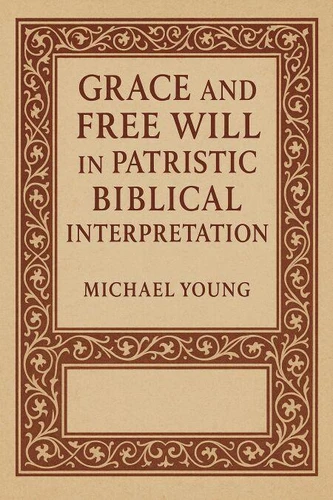Grace and Free Will in Patristic Biblical Interpretation
Par :Formats :
Disponible dans votre compte client Decitre ou Furet du Nord dès validation de votre commande. Le format ePub est :
- Compatible avec une lecture sur My Vivlio (smartphone, tablette, ordinateur)
- Compatible avec une lecture sur liseuses Vivlio
- Pour les liseuses autres que Vivlio, vous devez utiliser le logiciel Adobe Digital Edition. Non compatible avec la lecture sur les liseuses Kindle, Remarkable et Sony
 , qui est-ce ?
, qui est-ce ?Notre partenaire de plateforme de lecture numérique où vous retrouverez l'ensemble de vos ebooks gratuitement
Pour en savoir plus sur nos ebooks, consultez notre aide en ligne ici
- FormatePub
- ISBN8230735403
- EAN9798230735403
- Date de parution15/04/2025
- Protection num.pas de protection
- Infos supplémentairesepub
- ÉditeurIndependently Published
Résumé
This book explores the intricate theological tension between divine grace and human free will as articulated by the Church Fathers in their biblical exegesis. Through a careful examination of key Patristic figures, including Augustine of Hippo, Origen, Irenaeus, and others, Michael Young analyzes how early Christian theologians navigated the complex relationship between God's sovereign grace and humanity's moral freedom.
The book delves into the ways these thinkers interpreted biblical texts on salvation, original sin, and divine intervention, offering insights into how grace was understood as both a divine gift and a transformative power that required a free human response. By tracing the evolution of Patristic thought on grace and free will, the book reveals the foundational role these doctrines played in shaping Christian theology and their ongoing influence in later theological developments.
Through this work, Young provides a comprehensive understanding of early Christian biblical interpretation, exploring its deep philosophical and theological underpinnings, and how they continue to resonate in contemporary discussions of grace, salvation, and human agency.
The book delves into the ways these thinkers interpreted biblical texts on salvation, original sin, and divine intervention, offering insights into how grace was understood as both a divine gift and a transformative power that required a free human response. By tracing the evolution of Patristic thought on grace and free will, the book reveals the foundational role these doctrines played in shaping Christian theology and their ongoing influence in later theological developments.
Through this work, Young provides a comprehensive understanding of early Christian biblical interpretation, exploring its deep philosophical and theological underpinnings, and how they continue to resonate in contemporary discussions of grace, salvation, and human agency.
This book explores the intricate theological tension between divine grace and human free will as articulated by the Church Fathers in their biblical exegesis. Through a careful examination of key Patristic figures, including Augustine of Hippo, Origen, Irenaeus, and others, Michael Young analyzes how early Christian theologians navigated the complex relationship between God's sovereign grace and humanity's moral freedom.
The book delves into the ways these thinkers interpreted biblical texts on salvation, original sin, and divine intervention, offering insights into how grace was understood as both a divine gift and a transformative power that required a free human response. By tracing the evolution of Patristic thought on grace and free will, the book reveals the foundational role these doctrines played in shaping Christian theology and their ongoing influence in later theological developments.
Through this work, Young provides a comprehensive understanding of early Christian biblical interpretation, exploring its deep philosophical and theological underpinnings, and how they continue to resonate in contemporary discussions of grace, salvation, and human agency.
The book delves into the ways these thinkers interpreted biblical texts on salvation, original sin, and divine intervention, offering insights into how grace was understood as both a divine gift and a transformative power that required a free human response. By tracing the evolution of Patristic thought on grace and free will, the book reveals the foundational role these doctrines played in shaping Christian theology and their ongoing influence in later theological developments.
Through this work, Young provides a comprehensive understanding of early Christian biblical interpretation, exploring its deep philosophical and theological underpinnings, and how they continue to resonate in contemporary discussions of grace, salvation, and human agency.






















